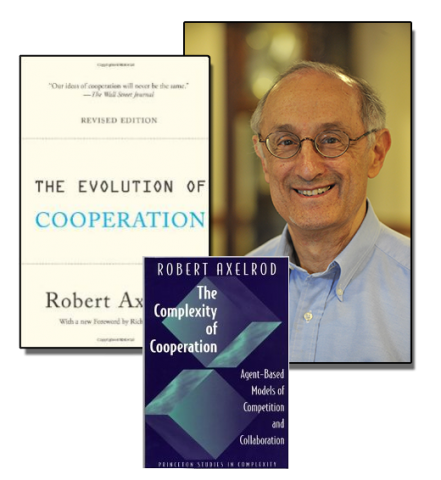Timlynn and I are intently focused on the incredible "serious fun" we and others are having as participants in the Ashoka/LEGO #Play2Learn - Re-imagine Learning Challenge. We're especially excited that both our projects made it to the Pacesetters Round of this global competition. Our entries are FactMiners – this site and project; the 'how' side of our activity – and The Softalk Apple Project – the 'what'/sandbox where we're doing FactMiners' applied research. Here is our FactMiners project entry on the Ashoka Changemakers' #Play2Learn Challenge website, and here is The Softalk Apple Project entry.
As part of the Pacesetters Round, we're trying a self-help strategy of "bundled crowdfunding" to see if we can self-organize a group of our fellow Pacesetter entrants to "put on a show." The 'show' we'll put on to help us learn to work together is called #DIYPlanetWalk. And we're going to 'open and perform our show' on Kickstarter as a way to group-fund our various individual #Play2Learn projects. The cool thing is that the side-effect of this peer-to-peer self-help learning and fundraising event is that the Open Source DIYPlanetWalk multi-platform app will be created and its sustainable "serious fun" community launched. Here's the 'main stage' for our bundled crowdfunding 'performance'; www.DIYPlanetWalk.com.
I'll be writing more on the various implications of this evolving activity and the opportunities it presents, but for this post I want to reflect a bit on the "shoulders of one giant" that my work and ideas stand upon. For that, I want to bring your attention to the brilliant and groundbreaking science and writing of Robert Axelrod.
Robert Axelrod is the Walgreen Professor for the Study of Human Understanding at the University of Michigan. His faculty home page informs us, "He is best known for his interdisciplinary work on the evolution of cooperation which has been cited more than 30,000 times. His current research interests include international security and sense-making." His faculty home page and Wikipedia page describe a career of astounding achievements.
In addition to his work on the theory of cooperation – or rather as an applied extension of that work – Robert Axelrod has also done groundbreaking work in complexity theory, especially agent-based modeling. It is this work that was of great interest to me when I was an Executive Consultant in the Object Technology Practice of IBM Global Services. We had a "skunk works" doing engagement-based applied R&D on "executable business models" based on the inspiring ideas of David Gelernter's "Mirror Worlds." Axelrod's work was super relevant to our agent-based modeling.
I have been having a series of email conversations with my Ashoka community manager, Dani Matielo, about how we could stimulate more "elastic networking" among #Play2Learn Pacesetters. Ashoka would like to encourage more spontaneous and transparent collaboration among the social entrepreneur entrants in its Changemakers' Challenges.
The challenge for the Challenge is that the group of Challenge entrants has a real 'yin-yang' dynamic of competing motive forces. On the one hand, we're all very much Kindred Spirits on a collective Quest to Re-imagine Learning. On the other hand, we're competitors for the limited resource of prize money and prestigious Ashoka Fellowships that are among the rewards for a select few who make it to the Winners' Circle at the end of the Challenge.
So there is a 'reality TV' aspect to an Ashoka Challenge that is different than a typical grant application submission and wait to hear model many of the entrants' are used to doing. And so, acknowledging that dynamic, we have to understand as much as we can about how we humans cooperate... and that's why I dug out our yellowed and treasured copies of Robert Axelrod's two foundation works, The Evolution of Cooperation and its 'sequel', The Complexity of Cooperation - Agent-Based Models of Competition and Collaboration.
Revisiting these two brilliant works was like refilling your canteen in a refreshing stream; I'm a more informed reader today than I was the first and subsequent times I turned to them for inspiration and insight. When you read such brilliant works written by a great scientist, you make a deeply-human connection just like you feel when you sit and contemplate a great work of art at a museum.
My purpose in this post is simply to reflect on the context of my re-reading, and to make these two closing points:
- Both of Robert Axelrod's great books are available in eBook format. Timlynn and I do Kindle, so here are links to the Amazon Kindle versions: The Evolution of Cooperation and The Complexity of Cooperation - Agent-Based Models of Competition and Collaboration. (I will gladly update with alternate vendor sources as I learn of them or they are brought to my attention.)
- Deep Weeds Alert: If you are not familiar with reading 'no holds barred' science theory, experiment descriptions, and interpretation of results, etc. you may be tempted to run screaming from the room at first 'dip' into either of these great books. Please be assured that only Hardcore Scientists working in these areas need to read the "gory details." All that scary-looking stuff has to be there "for the record" in communicating repeatable science to other scientists. For us practitioners -- that is, those who simply need to know what great scientists like Robert Axelrod figure out -- all we have to do is read the amazing and easily readable text that wraps the 'Deep Weeds' stuff.
I'll try to connect-the-dots some more in follow-up posts. In the meantime, investigate Robert Axelrod if you don't already know much about him. He is a Great Living American Scientist... right up there with Chomsky in my book.

